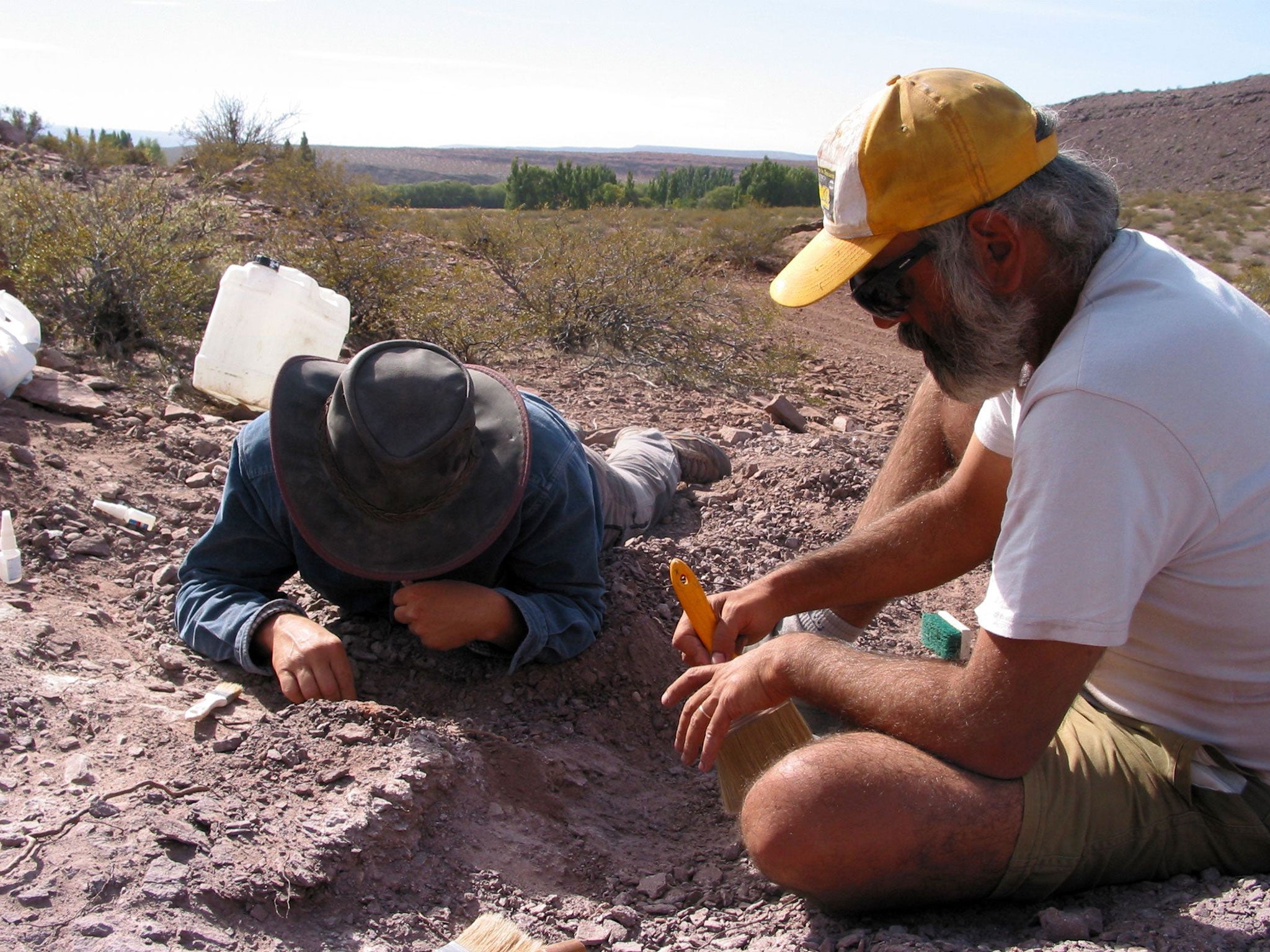Scientists discover new species of dinosaur in Argentina
Palaeontologists shocked to find remains examples of herbivore living in what was likely a desert

Your support helps us to tell the story
From reproductive rights to climate change to Big Tech, The Independent is on the ground when the story is developing. Whether it's investigating the financials of Elon Musk's pro-Trump PAC or producing our latest documentary, 'The A Word', which shines a light on the American women fighting for reproductive rights, we know how important it is to parse out the facts from the messaging.
At such a critical moment in US history, we need reporters on the ground. Your donation allows us to keep sending journalists to speak to both sides of the story.
The Independent is trusted by Americans across the entire political spectrum. And unlike many other quality news outlets, we choose not to lock Americans out of our reporting and analysis with paywalls. We believe quality journalism should be available to everyone, paid for by those who can afford it.
Your support makes all the difference.Palaeontologists have unearthed the remains of a previously unknown species of dinosaur that lived 110 million years ago in Argentina.
The remains of three separate members of the new species, an adult and two juveniles, were discovered by a team of Spanish and Argentinian scientists at a site in Neuquen in the centre of the South American country.
The new species, named Lavocatisaurus agrioensi, is a member of the herbivourous group of dinosaurs known as sauropods, which includes the likes of the diplodocus and brontosaurus.
Scientists said remains that belonged to the adult suggested it would have been around 12 metres in length, while both the young discovered were between six and seven metres long.
“We found most of the cranial bones: the snout, the jaws, a lot of teeth, also the bones that define the eye sockets for example and, in that way, we were able to create an almost complete reconstruction,” Jose Luis Carballido, a researcher at the Egidio Feruglio museum told Agence France-Presse.
“Not only is this the discovery of a new species in an area where you wouldn't expect to find fossils, but the skull is almost complete.”
Researchers who took part in the project from Zaragoza University and the National University of La Matanza said the group of dinosaurs likely moved around as a group and would have died together.
The discovery came as a huge surprise to palaeontologists, who believe the area where the remains were found would have been a desert with scare supply of water and limited sources of food for herbivores.
“While one can imagine that this group of sauropods could have adapted to move in more arid environments, with little vegetation, little humidity and little water, it's an area in which you wouldn't be looking for fossils,” Dr Carballido added.
Known for their enormous size, sauropods include some of the largest animals to have ever walked the planet.
Many species within the group weighed around 40 tons, while Argentinosaurus, thought to be the heaviest sauropod, likely weighed in excess of 80 tons.
Join our commenting forum
Join thought-provoking conversations, follow other Independent readers and see their replies
Comments